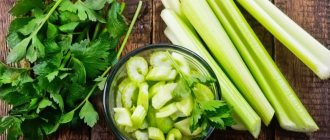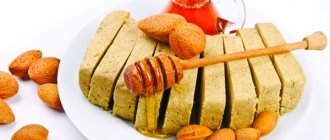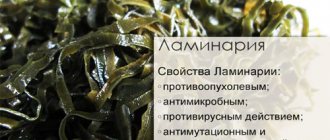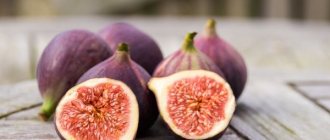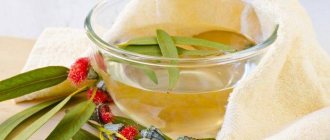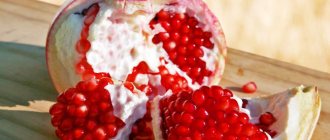Raspberries are considered the most delicious and healthy berry; children especially love to eat them. And sweet, delicious tea with raspberries replaces medications during illness. The berries and leaves, roots and branches of the plant are used for medicinal purposes. Raspberries retain their beneficial qualities when cooked or frozen; they are often used to make compotes, teas, make jam for the winter, and add them to desserts. Some women are interested in the question of whether pregnant women can drink raspberry tea. Now we will determine this.
The plant has a unique composition; it contains the following vitamins: A, E, B, a huge amount of vitamin C, salicylic and folic acid. It also includes elements such as calcium, iron, iodine, copper and others.
The plant is very popular in folk medicine. A healthier wild berry, it contains all the necessary vitamins for human health. The berry has a positive effect on the female body due to its high content of vitamin B. It is recommended to use it to restore the menstrual cycle and for painful periods. Traditional healers used to treat infertility with the plant. Pregnant women are recommended to eat fresh berries because their body needs them.
Raspberry tea at the beginning of pregnancy
For a pregnant woman, the most important are the first months, because there is a threat to the health of her and the fetus. During this period, the body's protective functions decrease, and the risk of various diseases arises. It is known that taking medications in the first trimester of pregnancy is undesirable, therefore, it is better to drink natural raspberry tea, which will replace medications.
Raspberry tea during pregnancy acts on the body as a diaphoretic, antipyretic, anti-inflammatory, antibacterial and diuretic.
The leaves of the plant contain tannins that promote vasoconstriction. Tea with raspberries reduces swelling and removes excess fluid from the body, so it is useful to drink it during pregnancy. Raspberry decoction is effective for constipation, toxicosis, and quickly relieves attacks of nausea. Also, taking it helps to endure pregnancy easier and the baby to develop normally. Raspberry tea contains folic acid and calcium, which have a positive effect on fetal development in the first months of pregnancy. Raspberry tea has a positive effect on the skeletal system and improves blood circulation. Regular intake of berry decoction prevents the development of iron deficiency anemia, which is often observed in pregnant women in the first trimester.
How is the product useful?
In the early stages of pregnancy (in the first weeks, months) there are many risks for the unborn baby.
Therefore, the girl’s body devotes all its strength to protecting it, sharing the maximum amount of vitamins and oxygen. As a result, the mother’s immune defense is reduced, so there is a chance of catching colds, especially if pregnancy occurs in the spring-autumn period. Raspberries have a large number of therapeutic properties:
- choleretic;
- diuretic;
- astringent;
- immunostimulating;
- anti-inflammatory;
- antibacterial;
- diaphoretic;
- antipyretic.
The berries have a healing effect due to their rich composition. They contain a huge amount of minerals (copper, boron, zinc, iron, iodine, sulfur, sodium, chlorine, magnesium, phosphorus, calcium, potassium), vitamins (beta-carotene, PP, H, E, C, B9, B6, B5, B2, B1, A). The composition also includes:
- tannins;
- sugar;
- fatty and organic acids;
- fiber;
- pectin.
Any of the biologically active components are beneficial for a woman and her baby. Therefore, during pregnancy, homemade or store-bought raspberry jam should always be on hand. Berries allow you to:
- eliminate attacks of nausea;
- prevent constipation, which often affects expectant mothers.
The treat allows the baby to develop fully and receive a sufficient amount of necessary substances. Raspberries contain calcium, potassium, and folic acid, which are vital for the baby.
If you use this product in the early stages:
- the likelihood of developing edema will decrease;
- the skeletal system will strengthen;
- Transport of nutrients and blood circulation will improve.
In addition, raspberries prepare the birth canal for the beginning of the process and increase the elasticity of the vagina.
It thins the blood in the vessels, which is necessary if you are prone to blood clots and have problems with blood pressure. Jam can be consumed in the following form.
- Add cottage cheese to porridge.
- Drink tea with him.
The berry saturates the girl’s body with fortified substances, so it becomes easier for her to fight diseases and resist viral attacks.
The expectant mother's diet must contain raspberry jam. But you shouldn’t abuse it, no matter how tasty it may be. In some cases, a treat may not bring benefit, but severe and irreparable harm.
An excellent anti-inflammatory agent
If during pregnancy it turns out that you can eat raspberry jam, you need to prepare it correctly. The store-bought delicacy is also, of course, tasty, but it cannot be compared with homemade. There is a classic recipe. Take:
- 1.2 kg sugar;
- 1 kg raspberries.
The finished jam should be immediately poured into jars, rolled up and consumed as needed. Cooking will take about 7 hours.
- Wash the berries, sort them, and cover with salted water for 10 minutes.
- Wash again, add sugar and leave in a cool place for 5 hours.
- As soon as the berries release juice, it needs to be poured into a separate saucepan.
- Add sugar to the juice and boil the syrup.
- Pour syrup over the berries and boil three times, skimming off the foam.
There is another recipe called “Five Minute”. Take:
- 1.5 kg sugar;
- 1 kg of ripe raspberries.
The difference in this recipe is that after cooling, the mass must be boiled again. After this, the jam is also poured into small jars and rolled up.
- Wash and sort the raspberries.
- Add sugar and leave for 5 hours.
- Boil the released juice, add berries, boil for 5 minutes, cool.
- The cooled jam is boiled again.
The following recipe is distinguished by its ease. Take:
- 1 kg raspberries;
- 200 ml water;
- 400 g sugar.
Has many therapeutic properties
The jam does not need to be cooked for several hours. This is what makes the recipe so appealing.
- Wash the raspberries, add water and boil for 3 minutes.
- Rub the resulting mass through a sieve, add sugar, and boil.
- Transfer the finished jam into a jar, sterilize for 15 minutes, and roll up.
Also find out the whole truth about alcohol during pregnancy and cranberry juice during pregnancy.
Raspberry tea during pregnancy
Fresh or dried berries successfully treat diseases of the upper respiratory tract. Housewives always prepare raspberry jam for the winter so that they can brew aromatic tea at any time of the year. Raspberry berries are considered a natural antibiotic due to the presence of vitamin C, therefore, not only adults, children, but also pregnant women are treated with raspberry tea.
Berry decoction is a good diaphoretic, so it is very effective in reducing high fever. To do this, after taking the infusion, you need to lie down in bed and wrap yourself up. Drinking raspberry tea improves immunity and helps to quickly cope with the disease. It is also good to use for sore throat and stomatitis, as a gargle.
Some doctors advise pregnant women to take raspberry tea, because it has a positive effect on the nervous system and helps relax the muscles of the uterus. Others, on the contrary, argue that it is better to avoid drinking tea, because drinking it in large quantities can cause a miscarriage. Therefore, before you start drinking raspberry infusion, consult your doctor. To avoid unnecessary consequences, eat half a glass of fresh raspberries per day.
Positive Impact
- Raspberry leaves contain tannins, which thicken the tissues of the mucous membranes, constrict blood vessels, reduce their permeability, and help relieve swelling, which is especially important for pregnant women.
- A decoction of raspberry leaves can also be used during pregnancy to treat diseases not related to pregnancy.
- They drink it for gastritis and inflammation of the intestines, and gargle with the same decoction for sore throat and stomatitis.
Raspberries contain a huge amount of vitamins, organic acids and valuable macroelements.
- They contain vital substances for humans such as potassium, calcium, magnesium, phosphorus, sodium and sulfur
- Berries contain a lot of sugars: glucose, sucrose and fructose.
- In addition, the plant contains valuable microelements such as iron, nickel, zinc and cobalt.
To preserve all these beneficial properties of raspberries, housewives do not boil them, but freeze them or make jam without cooking, simply mixing raspberries with sugar. In raspberry jam, which has been cooked for no more than 10 minutes, most of the vitamins are retained, although a certain amount is still lost. For example, vitamin C, which is sensitive to heat treatment, is lost by 50%.
Raspberries are a good cure for colds during pregnancy
. In winter, when there are no raspberries, you can brew the upper parts of the branches of the plant. They also have antipyretic and expectorant effects.
You can collect twigs in winter
For brewing, 2-3 raspberry branches are enough. They are washed, finely chopped, poured 1 liter of boiling water and left to infuse. It is advisable to wrap the teapot with a warm cloth for brewing. Then drink a glass of the decoction once or twice a day, like tea.
Raspberry tea during pregnancy
During pregnancy, it is advisable to eat natural foods that do not contain synthetic additives. For a healthy diet, berries and fruits grown in your region are suitable. It is better to avoid eating exotic fruits and berries during this period because the body is not used to absorbing nutrients unfamiliar to it.
Exotic fruits are not advisable during pregnancy
The most common apples, cherries, currants, and raspberries will be healthier for both the expectant mother and her baby. Well, all pregnant women have probably noticed that sometimes they are drawn to sour or salty foods, so the body itself indicates a deficiency of certain vitamins or microelements.
Healthy foods during pregnancy
Raspberry leaves can be used to improve the overall tone of the body or for medicinal purposes. But, if there is a serious problem with conceiving a child, for example, caused by a woman’s excess weight, you should not rely on the miraculous, instant effect of raspberry leaves. The problem will have to be solved based on the causes of this very problem. If a woman is diagnosed with infertility, it would be blasphemous to advise her on untested folk recipes for treatment.
Herbs should be handled with the same care as other medications.
Raspberry leaves will be beneficial only if they are taken correctly, and provided that the treatment is prescribed by a competent herbalist. If we consider raspberries as a cure for infertility, then their berries can only be useful as a general tonic and a cure for colds.
Sometimes raspberry leaves are used as an astringent and to treat some other diseases, in particular gastritis, enteritis and throat infections.
Although raspberries are not a panacea for all diseases, they are very tasty and healthy. This berry is a storehouse of vitamins and good mood.
Common raspberry is a subshrub plant from the rose family, growing in forests and near river banks. Often cultivated by gardeners. Raspberry fruits are usually red with a yellow or pink tint, containing up to 90% juice, which contains:
- glucose and fructose;
- vitamins A1, B1, B2, C and PP;
- organic acids (citric, salicylic, folic, tartaric, formic, etc.);
- mineral salts;
- micro- and macroelements (iron, magnesium, potassium, calcium, copper, zinc and cobalt);
- cellulose;
- purine;
- coumarins and colored plant glycosides (anthocyanins);
- pectins and nitrogenous substances.
Due to such a rich composition, raspberries are used as the first remedy for colds, depression and anxiety. In addition, decoctions and infusions based on it are good for diseases such as:
- anemia (anemia);
- atherosclerosis;
- arterial hypertension;
- angina;
- flu;
- various infectious diseases of the gastrointestinal tract, provoked by staphylococci, molds and yeast spores.
In the absence of contraindications, it is better to consume raspberries fresh, preparing desserts and drinks from them. When buying it at the market or in a store, you should pay attention to its appearance. It should not be dark, wrinkled or wormy. Real raspberries are bright red or slightly pinkish.
For greater benefit, you can also use the leaves, roots and chopped twigs of the plant. They are usually used to make medicines, including:
- A decoction for bronchitis. To prepare, take 40–50 g of crushed raspberry roots, which need to be boiled in 0.5 liters of hot water for 10 minutes after boiling. Then, when the decoction has cooled, it is filtered and drunk 50 ml three times a day. The course of treatment is 5–7 days.
- Infusion for constipation. You need to pour 200 ml of boiling water over a tablespoon of buckthorn bark, raspberry leaves and yarrow, and then let it brew for 30 minutes. After this, strain the liquid and drink 100 ml in the morning and before bed. The course of treatment with infusion is 10–14 days.
- Soothing decoction. Pour 2 tablespoons of a crushed mixture of linden branches and raspberry roots into 150–200 ml of boiling water and simmer over low heat for 5–10 minutes. Then strain the resulting mixture and drink immediately or twice a day (during the day and before bedtime).
- Infusion for anemia. Pour a tablespoon of a mixture of raspberry and nettle leaves in equal proportions into a glass of boiling water. Before use, leave for 30–40 minutes and be sure to strain. Drink a tablespoon 3-4 times a day.
- Tea for flu and runny nose. To do this, you need 2 teaspoons of raspberry jam or jam, pour 250 ml of boiling water. You need to drink this tea as often as possible (recommended 3 to 6 times a day).
During pregnancy, you should not completely give up raspberries. In most cases, with its help, a woman can get rid of many unpleasant symptoms without taking medications.
Most opinions agree that these wonderful berries are useful for pregnant women. First of all, this is the replenishment of vitamins necessary for the body, which have a beneficial effect both on the development of the embryo and on the condition and well-being of the mother herself.
In addition, fiber and pectin stimulate intestinal motility, preventing constipation, which often affects pregnant women. Being a natural diuretic, raspberries can prevent swelling. Well, microelements, such as calcium and iron, are simply necessary for expectant mothers.
The described plant has long been famous in folk medicine as a medicine to fight colds, and not only the fruits are used. It is also unique in that its pronounced properties are not lost even after heat treatment, so tea with raspberry jam is one of the first helpers for many during the cold season.
To summarize, you can clearly see that raspberries during pregnancy can be useful in many situations:
- Diaphoretic and bactericidal properties help alleviate and sometimes prevent respiratory diseases.
- The high content of vitamins has a beneficial effect on the body and helps strengthen the immune system.
- Folic acid is essential for normal fetal development.
- A mild diuretic effect helps avoid swelling without side effects.
- Normalizes the functioning of the gastrointestinal tract thanks to fiber and pectin, and prevents constipation.
- Due to the presence of iron, it helps prevent anemia.
- The easily digestible calcium contained in the composition is necessary for both the mother and the rapidly developing child in the womb.
Raspberry jam for pregnant women
If berry infusion can increase the tone of the uterus, then taking jam is less dangerous for women's health. But it has a drawback: jam is high in calories, and regular use can add several extra pounds to a pregnant woman. If a pregnant woman catches a cold, then jam will definitely come to her aid and help lower her temperature. A good alternative would be fresh berries of the plant along with honey. The combination of these products will significantly increase immunity and provide the body with nutrients.
Raspberry leaf tea is a good preparation for labor. Regular use of the decoction in the later stages helps to relax the smooth muscles of the cervix, helping to prepare it for the normal process of childbirth. Therefore, in the early stages this drink is contraindicated.
It is recommended to drink tea from the leaves no earlier than the thirty-second week of pregnancy.
It is recommended to drink raspberry tea for women who are post-term pregnant. The decoction can be used for external use during pregnancy. Its properties have an antiseptic, anti-inflammatory effect, so sitz baths and douching help get rid of thrush. As a preventive measure, women can wash themselves with a decoction.
How to store it correctly
Fresh raspberries cannot be preserved for a long time, since this berry is very delicate and easily injured. For several days after collection or purchase, it can be stored in the refrigerator in a plastic container, carefully laid out in 3-4 layers. A larger number of layers will lead to pressure on the lower ones and the release of juice by the berries.
The tea is drunk immediately after preparation, the compote will sit in the refrigerator for a day or two, and the broth can be reheated the next day.
Also find out
It is worth understanding that for a pregnant woman’s body, it is recommended to serve all products only fresh and of high quality, so it is better not to store them, but to prepare them in small portions for timely use.
The longest shelf life of all raspberry products is jam. This sweet, thick mass has long been considered a panacea for colds.
Jam can replace fresh berries in compote or tea. This product can be stored for 1–2 years in a pantry or basement.
A pregnant woman becomes more capricious and demanding because a new life is developing inside her. And this requires enormous concentration of effort of the whole organism. Moderate use of various parts of raspberries at different times of gestation will help the expectant mother feel good, be in the mood and convey only positive things to the unborn child.
Why is it forbidden for pregnant women to drink raspberry tea?
We have determined that the berry drink is beneficial for pregnant women. But there is another opinion that it can also be harmful to health. Therefore, we recommend taking tea in minimal doses or giving it up altogether during this period.
For expectant mothers, when consuming this infusion, the following risks may arise:
- The berry drink can thin the blood; taking it before childbirth can cause bleeding;
- If you regularly drink an infusion that relaxes the muscles of the uterus, you can cause premature birth;
- Due to increased uterine tone, a miscarriage may occur.
Fruit content
Raspberries contain:
- sugar;
- organic acids;
- antioxidants;
- tannins;
- protein substances;
- cellulose.
The berry contains a large amount of B vitamins, including B9, called folic acid, vitamin A and vitamin C. In addition, the fruits contain useful minerals such as iron, calcium, potassium, magnesium, zinc.
Due to the low sucrose content (about 10%), the berry has a low calorie content. Such a balanced composition indicates that raspberries during pregnancy can bring undoubted benefits to the health of the mother and unborn child, but is this true?
How to brew raspberry tea
From berries
To prepare a healthy infusion for pregnant women, you need
- Place one tablespoon of dry or fresh raspberries in a teapot;
- Pour a glass of boiling water;
- Close and leave for about fifteen minutes.
You can make black or green tea with the addition of raspberries.
How to choose and consume raspberries with the greatest benefit for yourself and your baby?
Fresh berries are the healthiest for pregnant women. They contain plant fiber, which is beneficial for intestinal function, and also do not contain as many carbohydrates as juices do. Preserves, compotes, jams are prepared using refined sugar, so consuming these products during pregnancy is possible only as a last resort - during a cold.
Many varieties of raspberries contain up to 8-10% of their own sugars in the berries, and abuse of sweet jam or jam can lead to excess weight gain for the woman and fetus, as well as other complications. If you want a sweet raspberry drink, you can make a fruit drink from fresh berries without sugar. It is impossible to replace the daily fluid intake with tea or fruit drink; a pregnant woman should drink a sufficient amount of plain fresh water.
But when consuming fresh berries, the following conditions must be taken into account:
- berries must be fresh, dry, clean, their shelf life is 2-3 days in the refrigerator;
- not overripe, without signs of rot, damage by pests;
- if you have your own raspberry tree, then it should be located far from the roadway;
- at the market, purchase berries from trusted sellers who should not use nitrates and harsh chemicals;
- The daily norm for consuming fresh berries in the first half of pregnancy is 100-150 grams; in the second half of pregnancy, the norm can be increased by 2-3 times.
Regarding fresh raspberries and products made from them, it is always better to consult your gynecologist, who will give advice based on the pregnant woman’s tests.
The form of using raspberries during pregnancy can be different - fresh berries or jam, infusions and decoctions, teas and compotes. Combinations of plant parts with water are most suitable during pregnancy, as they do not cause allergies and can be served in various concentrations.
Read more
This drink is used to quench thirst and prevent diseases from the middle of the second trimester of pregnancy.
You can start drinking 1–2 cups of tea a day, by the beginning of the third trimester the “dose” increases to 2–3 cups, and in anticipation of childbirth you can drink 5 cups.
This drink is controversial among gynecologists. Some believe that it can cause miscarriage or premature birth, others have the opposite opinion and insist on the safety of teas and decoctions.
The recipe for this tea is simple: pour a handful of dried raspberry leaves with boiling water in a liter teapot or thermos for 5–10 minutes. After this, the tea leaves are poured into a medium cup to a third of the volume and boiling water is added. Place 1-2 thin slices of lemon with skin and a pinch of sugar there. After 5 minutes you can drink tea.
Compote
During pregnancy, do not consume raspberry compote in the broad sense of the word. Rather, it is a fruit drink or a light infusion of the berries of this plant. The drink can be prepared initially in a weak concentration, or it can be diluted before use.
Important! It is better to prepare small portions of the drink daily or every other day, so that you always use fresh compote, and not heated from the refrigerator.
For this dish, there is also no consensus among doctors - despite all the usefulness of raspberries, you should not abuse them, because allergies and a negative effect on chronic diseases are possible, therefore, as with all nutrition during pregnancy, moderation is necessary. To quench your thirst and enjoy the taste in the 2nd–3rd trimesters, you can drink 2–3 cups of weak compote per day, not from the refrigerator.
The drink is prepared in this way: place a handful of fresh or dried raspberries in a liter of boiling water and cook over medium heat for 2-3 minutes and on low for another 5 minutes. After this, cover the container with compote and leave for 15–20 minutes. You can add a couple of pinches of sugar.
Raspberry decoction
A decoction with medicinal properties from the leaves of the plant is used in the third trimester, when childbirth is already expected. It tones, calms and allows you to focus on the upcoming process of giving birth to a child.
If you are already in the 40th week of pregnancy, you can drink the decoction hot - this can help the onset of contractions. In previous weeks, it is good to take this drink cooled or slightly warmed up.
The decoction is made as follows: a tablespoon of crushed dry leaves, small branches and thin stems is poured into 0.5 liters of boiling water and the mixture is boiled for about 8 minutes. After this, the broth is filtered and cooled. You can drink a small cup 2-3 times a day.
Tops and roots
Raspberries are unique in that they contain not only fruits, but also leaves, twigs, flowers and roots. It contains many organic acids (ascorbic, salicylic), tannins, pectin, glucose, fructose, carotene, B vitamins, as well as PP and C. Interestingly, even with heat treatment (boiling and freezing), all beneficial properties are preserved.
Therefore, in the summer you can and should stock up on this berry for the cold and cold season. Pregnant women need to eat raspberries little by little, if only because they have anti-inflammatory, immunostimulating, laxative, antiemetic, diaphoretic and antipyretic, choleretic and other properties.
When the temperature is high, raspberry jam with tea is just what the doctor ordered! In the literal sense of the word. Most often, gynecologists recommend reducing fever in this way. Raspberries contain salicylic acid (and this is a plant antibiotic), as well as vitamin C. Seven sweats will disappear one hundred percent, and the temperature will drop at the same time.
Fragrant recipes
To strengthen the immune system, you can prepare a dessert duet - berries and honey. To do this, grind half a glass of raspberries with three tablespoons of honey and eat a little at a time with tea or milk.
We suggest you read: You can drink Monural during pregnancy
Raspberry jam is also a must have in the refrigerator. It doesn’t matter whether it’s boiled or a berry mashed with sugar. The beneficial properties in it are completely preserved, while moving into a “stable” state. This means that raspberries in the form of jam have much less effect on the tone of the uterus. But don't forget about calories! Jam has 5 times more calories. Therefore, do not abuse it; excess weight during pregnancy is of no use.
Fragrant tea with raspberries is wonderful, especially in winter. It helps not only with decreased immunity, but also with nausea and dizziness. In a cup of weak black or green tea, you need to add some berries in the form of jam or mashed with sugar. If you are predisposed to allergies, consult your gynecologist.
If you have prepared dried berries for the winter, you can make a drink from them. To do this, rinse 2 tablespoons of raspberries well and pour boiling water over them, then pour a glass of hot boiled water and boil for 5 minutes. Then pour it into a teapot, wrap it in a towel, and let it simmer for 10 minutes.
You can drink raspberry leaf tea, as I already said, immediately before giving birth. Here is his recipe: pour 400 grams of boiled hot water into 2 tbsp. spoons of dry leaves. Leave for 10 minutes. You can add a little honey or sugar to taste.
You can also drink an infusion of branches to relax the muscles of the uterus. To do this, put the chopped (broken and washed) branches in a saucepan, boil for 10 minutes, then leave for half an hour.
Instead of store-bought juice with harmful preservatives and GMOs, it is better to drink homemade juice or raspberry compote. Remember to rinse fresh berries, but do not press too hard, as the berries are very fragile.
Finally, I left a very tasty recipe, especially relevant for winter. Be sure to prepare it for yourself and your loved ones.
Raspberry punch. For it we need 1 glass of cream, a third of a glass of powdered sugar (can be ground from sugar in a coffee grinder or blender) and a glass of raspberry juice. Whisk the cream and powder, then add the juice and beat again. Place on low heat in an enamel bowl, but do not bring to a boil. Serve hot. Mmm, I can already smell this smell, and you?
Contraindications
The benefits of this product will not be the same for all women.
- Raspberry jam should not be consumed in the following cases:
- at the beginning and middle of the third trimester;
- if you have heartburn;
- with gastritis;
- for diabetes mellitus;
- when asthma manifests itself;
- allergic reactions.
In addition to the above, there are contraindications to the use of infusion. It should not be drunk if:
- Peptic ulcer, gastritis;
- Kidney stones, inflammation;
- Individual intolerance to the disease;
- Liver diseases.
Fly in the ointment in a jar of jam
Well, now there’s a little fly in the ointment on this deliciousness. Precautionary measures must be observed in everything during pregnancy. Therefore, remember how raspberries can be dangerous. First of all, about when you can’t eat it in any form: with individual intolerance, stomach and duodenal ulcers, gastritis and liver diseases, low blood pressure, nephritis.
The following recommendations will help you avoid troubles and serious consequences during pregnancy:
- Remember, raspberries can not only reduce the temperature, but also increase it. Therefore, you should not eat kilograms of it during ARVI.
- The berries should not be eaten immediately before childbirth, as severe bleeding may occur due to the ability of raspberries to thin the blood.
- Decoctions and infusions with leaves and roots are prohibited from drinking earlier than 2 weeks before giving birth. They can relax and soften the birth canal so much that contractions begin prematurely.
- In the first trimester, it is better to abstain from raspberries altogether. It increases the tone of the uterus, which can cause miscarriage. At 13 weeks and later, you can already pamper yourself with berries without dangerous consequences.
Even if you haven't had allergies before, they can easily develop during pregnancy. After conception, the hormonal background undergoes, one might say, a revolution, and now familiar foods can bring harm rather than benefit. To find out if you have an allergic reaction to raspberries, eat a few berries and wait 4-5 hours. If there is an allergy, during this time it will manifest itself in all its glory. No? Well, great, eat for your health. But no more than half a glass a day.
